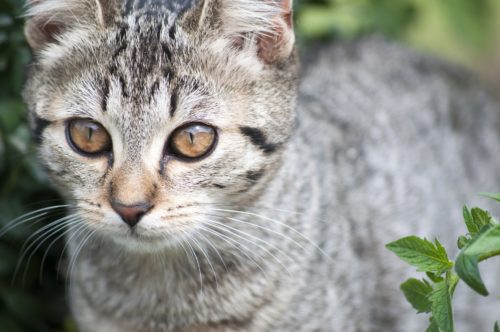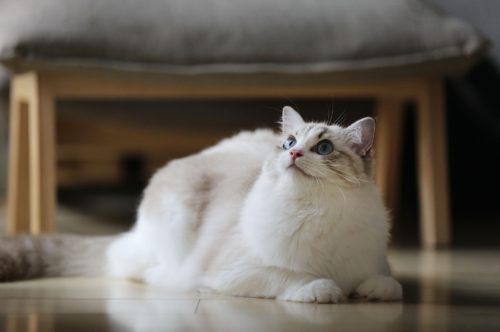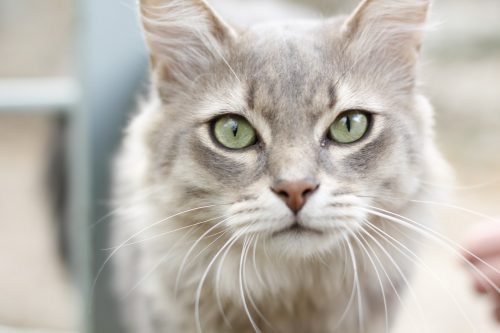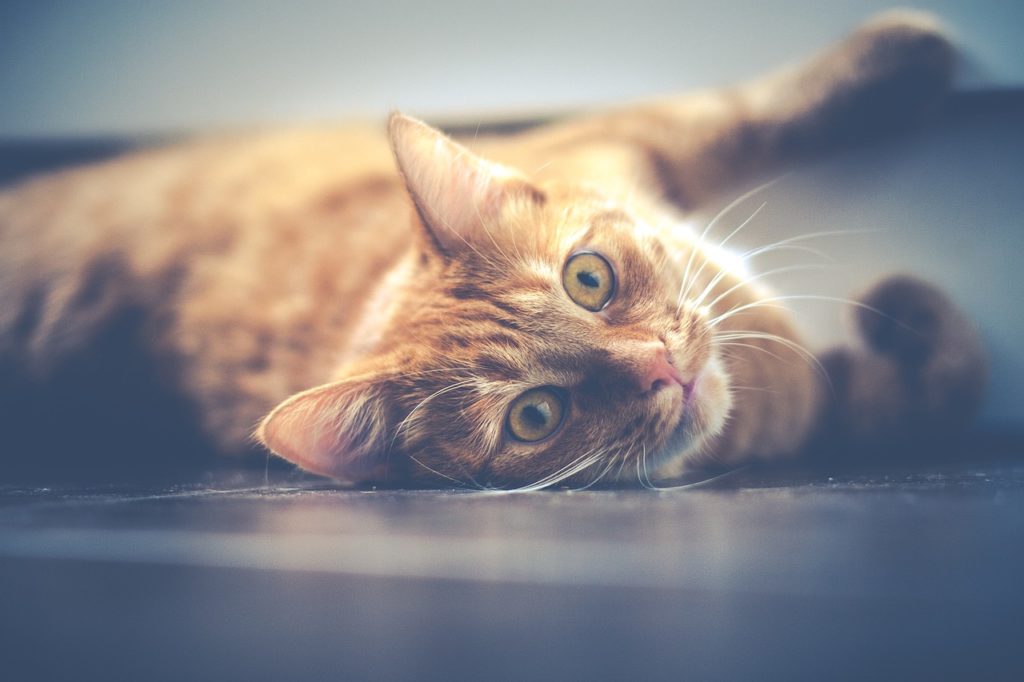Congestive heart failure in cats is a condition that many pet owners do not know exists and are not prepared for if their cat develops it. While many people often only think of human beings when discussing heart failure, heart failure in cats is fairly common. If your cat does develop Congestive Heart Failure, early detection may greatly increase his chance of survival. Congestive Heart Failure can be terrifying to witness in your pet and may make you feel helpless, but there are steps you can take to be prepared for if your cat should develop Congestive Heart Failure. The best way to prepare yourself to recognize the signs of Congestive Heart Failure in cats early is to understand what Congestive Heart Failure is, as well as the warning signs that will alert you to its development. To help you understand what Congestive Heart Failure is and how to recognize it, we have put together an introductory guide to Congestive Heart Failure that includes an overview of what it is, the common causes of Congestive Heart Failure, the warning signs of Congestive Heart Failure, and the available treatment options.
An Overview of Congestive Heart Failure in Cats
Congestive Heart Failure is a medical condition that affects the heart of a cat and that is very dangerous. Congestive Heart Failure is a life-threatening condition that needs immediate medical treatment. To understand what Congestive Heart Failure is, it is important to know the general anatomy of how a heart is structured. The heart is made up of four, distinct chambers. The two chambers at the bottom of the heart are referred to as the right and left ventricles. The top two chambers of the heart are known as the right and left atria. In a normally functioning heart, oxygenated blood travels from the left ventricle of the heart to the aortic valve, which controls the distribution of oxygenated blood throughout the rest of the body. The aortic valve is the main artery in the body.
When a cat is suffering from Congestive Heart Failure, there is not an adequate amount of blood traveling throughout the body. Because of the decreased circulation of blood, fluid begins to build back up within the lungs, which can make it extremely uncomfortable and difficult to breath. With Congestive Heart Failure, the failure within the heart can occur within either the left or right side of the heart, or in some cases may occur within both the left and right sides of the heart. Congestive Heart Failure is often caused by Hypertrophic Cardiomyopathy. Hypertrophic Cardiomyopathy occurs when the left ventricle of the heart has thickened or enlarged much more than normal, causing its ability to pump oxygenated blood to the aortic valve to become compromised. It is important to note that the thickness in the wall of the left ventricle of the heart is thicker than the right ventricle in a normal heart since it has a much greater workload pumping blood throughout the body. A veterinarian or feline cardiologist will be able to distinguish between a normal thickness in the left ventricle and an abnormally thick or enlarged left ventricle.
Common Causes of Congestive Heart Failure in Cats
Congestive Heart Failure can be caused by a number of different factors and underlying conditions. Before delving into the common causes, it is vital to baseline this understanding with information about the population of cats most affected by this condition. It is important to note that cats of any age, breed, or gender can be affected by Congestive Heart Failure. However, Congestive Heart Failure is more comment in cats that are middle-aged to elderly. There has also been reports that Congestive Heart Failure is more common in Maine Coon cats and that there may be a genetic predisposition to developing Hypertrophic Cardiomyopathy, and subsequently Congestive Heart Failure. With these overarching observations about the population of cats most affected by Congestive Heart Failure, it is now possible to examine the most common causes of Congestive Heart Failure.
One of the most common causes of Congestive Heart Failure is Hypertrophic Cardiomyopathy, which is discussed in detail above. In addition to this underlying cause, thyroid disorder is another culprit of Congestive Heart Failure. Thyroid disorder most often includes two distinct types of disorders: hyperthyroidism and hypothyroidism. In cats suffering from hyperthyroidism, their thyroid gland produces an excess amount of levothyroxine, a thyroid hormone, which causes the metabolism and a number of other internal processes to shift into overdrive. On the other hand, hypothyroidism occurs when the thyroid gland produces too little liothyronine and levothyroxine, two of the main thyroid hormones, which causes the metabolism to slow down considerably and results in a number of other important side effects. Hyperthyroidism is more likely to cause Congestive Heart Failure than Hypothyroidism. In addition to thyroid disorders, another common cause of Congestive Heart Failure is high blood pressure. High blood pressure in cats can be diet related, but some cats are also genetically predisposed to develop high blood pressure, particularly as they age. Another potential cause of Congestive Heart Failure is pericardial effusion. Pericardial effusion occurs when there is fluid surrounding the heart, which can place stress on the heart over time.
In some cats, Congestive Heart Failure can result from a heart defect that worsens over time. Birth defects are often not detected until later in the cat’s life once they have begun to display symptoms of Congestive Heart Failure. Another cause of Congestive Heart Failure is a narrowing of the aortic artery. This can occur for a variety of reasons and places stress on the heart while also preventing proper blood circulation to the rest of the body. In addition to the above listed causes, other common causes of Congestive Heart Failure include pregnancy, anemia, abnormal heart rhythm, heartworm disease, blood clots within the heart, heart valve blockages or deficiencies, defects in the heart walls, and tumors.
Warning Signs of Congestive Heart Failure in Cats

When a cat first begins to develop Congestive Heart Failure, it is common for them to exhibit few to no symptoms. However, over time their Congestive Heart Failure will worsen as fluid builds up in the lungs, which will make more symptoms appear and will alert their owner to an issue. As Congestive Heart Failure progresses, these symptoms will continue to worsen, particularly if a veterinarian does not intervene and begin a treatment plan. The common symptoms and warning signs of Congestive Heart Failure are extremely important to know as Congestive Heart Failure is usually diagnosed based on symptoms that an owner observes and a subsequent diagnosis by a veterinarian. The earlier Congestive Heart Failure is diagnosed, the higher the probability that your cat will survive. Below are the most common symptoms of Congestive Heart Failure in cats.
- Rapid breathing
- Difficulty breathing
- Unusual lung sounds
- Abnormal heart sounds
- Weakness
- Lethargy
- Loss of appetite
- Increased heart rate
- Paralysis of the hind limbs
- Pale or blue-tinted mucous membranes
- Bluish discoloration of the nail beds or foot pads
- Heart murmur
- Abdominal distension
- Collapse
- Enlarged liver
- Sudden death
- Blue or gray gums or tongue
Diagnosing Congestive Heart Failure in Cats
If you believe your cat may be exhibiting the symptoms of Congestive Heart Failure, your first priority needs to be making them an appointment with a licensed veterinarian. Once you arrive at your appointment, you will need to provide your veterinarian with a thorough medical history. A complete medical history will often include information about age, overall health, preexisting medical conditions, medications they are taking, as well as the duration and severity of their symptoms. During this discussion, the veterinarian may inquire whether or not you have any theories as to what may be causing your cat’s symptoms and may also share if they have any theories based on their initial analysis of the history and symptoms. Once you and your veterinarian have discussed your cat’s medical history, they will weigh your cat and conduct an initial physical examination. Part of this physical examination will include listening to your cat’s heart rhythm. If there is a significant amount of fluid built up within the lungs, the veterinarian will hear the congestion. Despite being able to hear heart rhythm abnormalities and fluid built up in the lungs, it is likely that your veterinarian will conduct additional tests to confirm their diagnosis.
The veterinarian may request a number of standard laboratory tests, including a complete blood count (CBC), a urinalysis, a biochemical panel, a heartworm test, a thyroid test, and an electrolyte panel. In addition to these tests, your veterinarian may also request that your cat be tested for Feline Immunodeficiency Virus or Feline Leukemia to rule these out as the culprit. To confirm a diagnosis of Congestive Heart Failure, your veterinarian will likely order chest X-rays, an electrocardiogram, and/or an echocardiogram. The chest X-rays will allow the veterinarian to assess the condition of the heart, blood vessels, and the lungs. The electrocardiogram will allow the veterinarian to assess cardiac electrical conduction in order to see where abnormal heart rhythms are originating from. An echocardiogram uses ultrasound imaging to see whether there are any abnormalities within the heart, enlargements, or thickening of the walls of the heart. Some veterinarians may refer patients to a feline cardiologist that specializes in heart conditions to confirm their diagnosis, while others may feel comfortable giving their diagnosis after conducting a battery of tests.
Treating Congestive Heart Failure in Cats
The treatment of Congestive Heart Failure in cats is largely reliant on the underlying cause of the Congestive Heart Failure and its severity. In cats that have developed Congestive Heart Failure as a result of Hyperthyroidism, treating the underlying thyroid condition by surgically removing the thyroid gland, administering oral medication, or using radioactive iodine therapy will help to correct the Congestive Heart Failure by treating the underlying condition. In many other cases, the treatment options fall into three distinct categories: surgical treatment, hospitalization, or symptom management. Below is a detailed look into each of these three types of treatment for Congestive Heart Failure in cats.
- Surgical Treatment: If the Congestive Heart Failure is caused by a birth defect or a congenital or acquired heart valve disease, then the most likely treatment recommendation is surgery to repair the defect or abnormality. This treatment option is prohibitive for many pet owners as it is often expensive and requires a surgeon that specializes in feline cardiac surgery. Undergoing surgery can also be dangerous for older cats or cats that have other medical conditions.
- Hospitalization: Some cats may require hospitalization if their symptoms have become severe. If a cat is having a difficult time breathing or possesses extremely low blood pressure, they may require oxygen therapy to help regulate breathing patterns. If the cat has developed fluid around the heart or within the lungs, then the fluid may need to be drained to relieve pressure on the heart and make breathing easier. For many cats, once the fluid that has built up in the lungs or around the heart has been removed, they will be able to breathe much easier due to increased blood circulation in the body. If the veterinarian detects fluid within the chest or abdomen, they may utilize a technique called tapping to remove it.
- Symptom Management: Unfortunately, for many cats diagnosed with Congestive Heart Failure, it is not curable. If a veterinarian determines that the appearance of Congestive Heart Failure is not curable, they will attempt to manage the symptoms and maintain a high quality of life. The most common method for symptom management is through the use of prescription medications. Many veterinarians will prescribe a diuretic to help reduce fluid build-up in the lungs or around the heart. They will also usually prescribe Ace Inhibitors or Vasodilators to help the blood move more easily throughout the body by dilating the blood vessels. For some cats, a veterinarian may prescribe positive inotropes to make the heart beat more forcefully to pump more blood throughout the body. If a cat is put on prescription medications to control symptoms of Congestive Heart Failure, they will likely be on them for the rest of their life.




